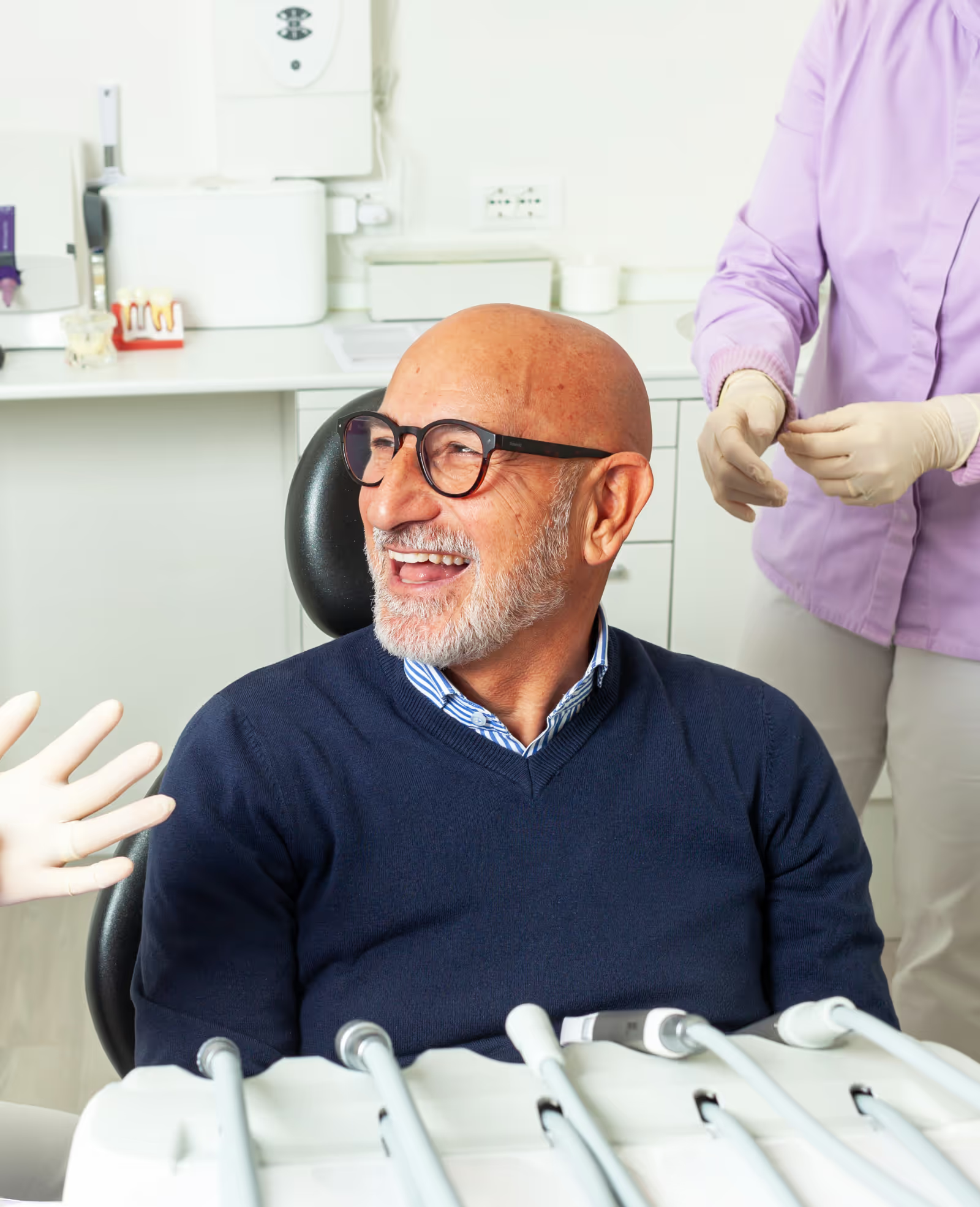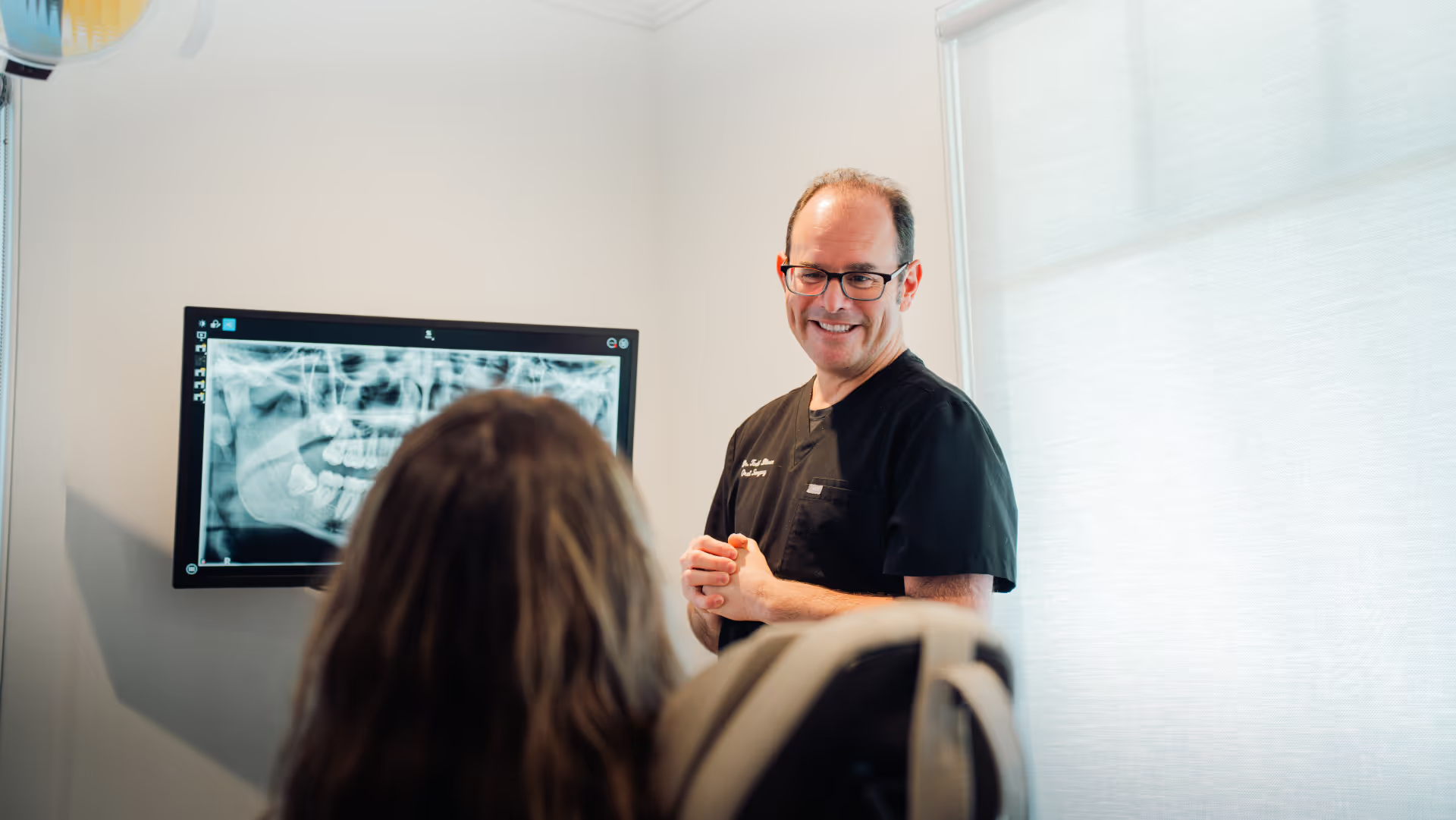
Oral Pathologyin Fairfield County
Concerned about an unusual sore or lesion in your mouth? Oral pathology helps detect and diagnose abnormalities early. Whether it’s a persistent ulcer or a suspicious lump, a prompt evaluation by an oral surgeon can bring peace of mind—and ensure the right treatment plan.
Why should I choose oral pathology services?
Oral pathology is a vital part of oral health that focuses on identifying abnormal changes in the tissues of the mouth, jaw, and face. These can include everything from ulcers and red or white patches to growths or lumps. While many of these issues are harmless, some may be early indicators of serious conditions—including oral cancer. Oral surgeons are trained to assess these concerns with a deeper level of medical and surgical knowledge. If something looks suspicious, they can perform a biopsy and coordinate the next steps based on a definitive diagnosis. Taking action early often leads to more effective, less invasive treatment.

Personalized, Compassionate Care
From your first exam to your final results, you’ll be treated with honesty, kindness, and respect. Our team takes time to explain everything clearly and support you at every step.

Surgical Expertise for Biopsies
When a biopsy is needed, it’s performed by a trained oral surgeon who specializes in precise, minimally invasive tissue removal—ensuring both safety and comfort throughout the procedure.

High-Tech Screening & Evaluation
Using advanced tools like CBCT imaging and intraoral cameras, oral surgeons can visualize both surface-level and deep-tissue abnormalities—enabling accurate detection and diagnosis with minimal guesswork.

The Benefits of Oral Pathology Services
Early Detection, Better Outcomes
Catching abnormal changes early can lead to faster, less complex treatment. In many cases, early detection can help prevent a minor issue from becoming something more serious.
Clear Answers & Peace of Mind
A comprehensive exam gives you clarity. Whether the issue turns out to be harmless or something requiring treatment, you’ll have the confidence of knowing exactly what you're dealing with.
Specialized Surgical Care
If a biopsy or lesion removal is needed, oral surgeons have the training to perform it safely and efficiently—minimizing discomfort and promoting a smooth recovery.
Diagnostic Care Within Reach
The Oral Pathology Evaluation Process
Comprehensive Examination
Your visit starts with a detailed visual and physical exam of the mouth, tongue, gums, lips, cheeks, and jaw. The oral surgeon will assess any irregular areas, review your symptoms and medical history, and determine whether further testing is needed. Even if the concern turns out to be minor, you’ll leave with clarity and reassurance.

Imaging or Biopsy
If something appears unusual, advanced imaging may be used to get a clearer picture. In many cases, a small sample of tissue (biopsy) will be collected and sent to a lab for analysis. This is typically done in-office under local anesthesia, and the process is quick and relatively painless. The goal is to gather accurate information while keeping you comfortable throughout.
Diagnosis & Next Steps
Once the biopsy results are available, your surgeon will review them with you and explain what they mean in plain language. If treatment is needed, you’ll be presented with a clear plan. If the lesion is benign, your provider may simply recommend regular monitoring. Either way, you’ll have a path forward and the support of a dedicated care team.
FAQs
Frequently Asked Questions
Check out these frequently asked questions, or call us to speak with our team.
Oral pathology can help identify a wide range of conditions, from common issues like canker sores and fungal infections to more serious concerns like oral cancer, precancerous lesions, autoimmune conditions, or benign growths. If you’ve noticed anything unusual—especially something that isn’t healing—oral pathology can provide important answers.
Most biopsies are quick and relatively comfortable procedures. Local anesthesia is used to numb the area, and only a small piece of tissue is removed. You may feel slight pressure, but you shouldn’t feel pain. The procedure typically takes just a few minutes, and most patients return to their normal activities shortly afterward.
If the results indicate a serious condition, such as a malignant or precancerous lesion, your oral surgeon will explain the diagnosis in detail and connect you with the appropriate specialists if needed. Many oral health conditions are treatable—especially when caught early—and your surgical team will be by your side to help guide you through every next step of care.

